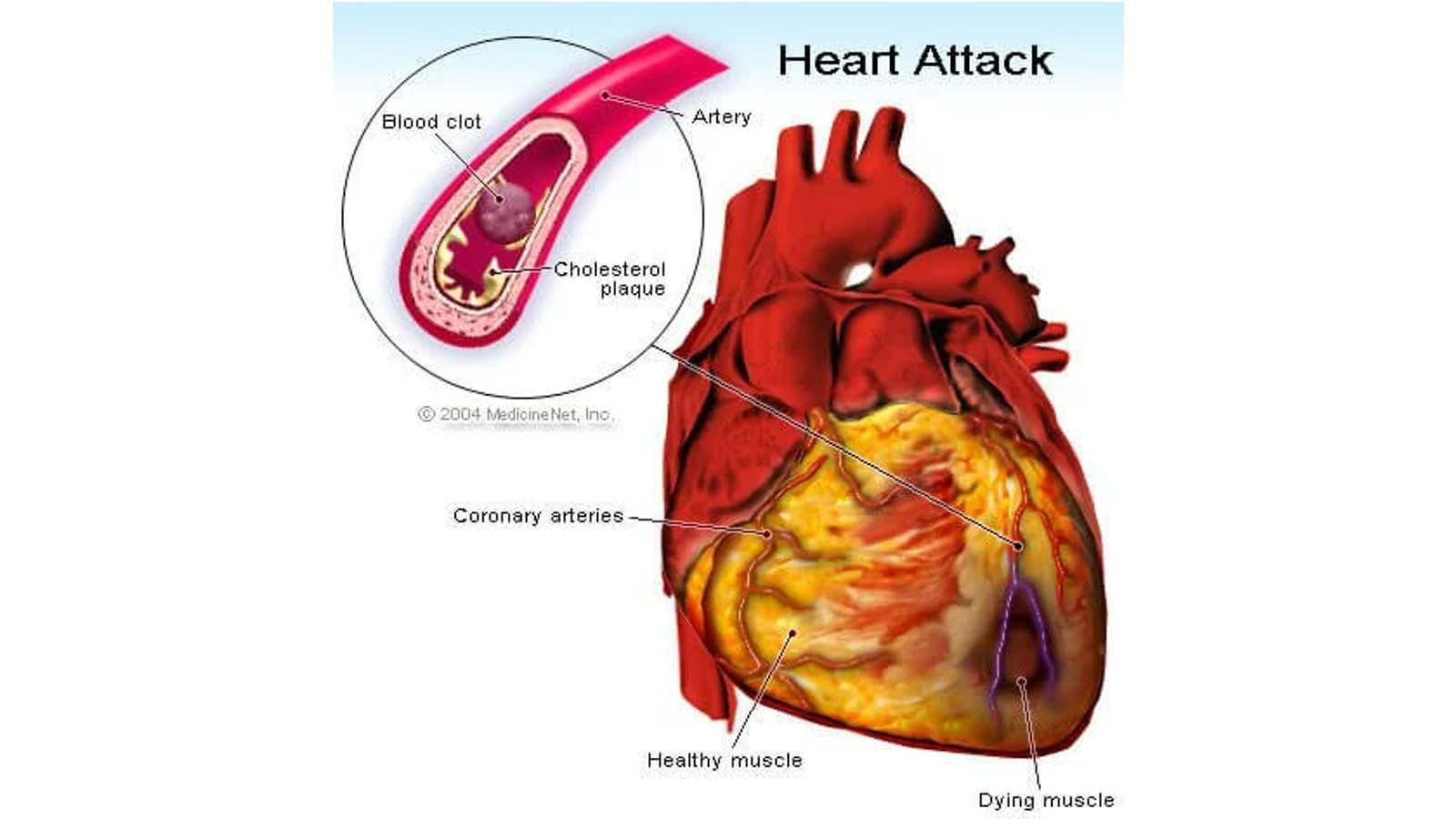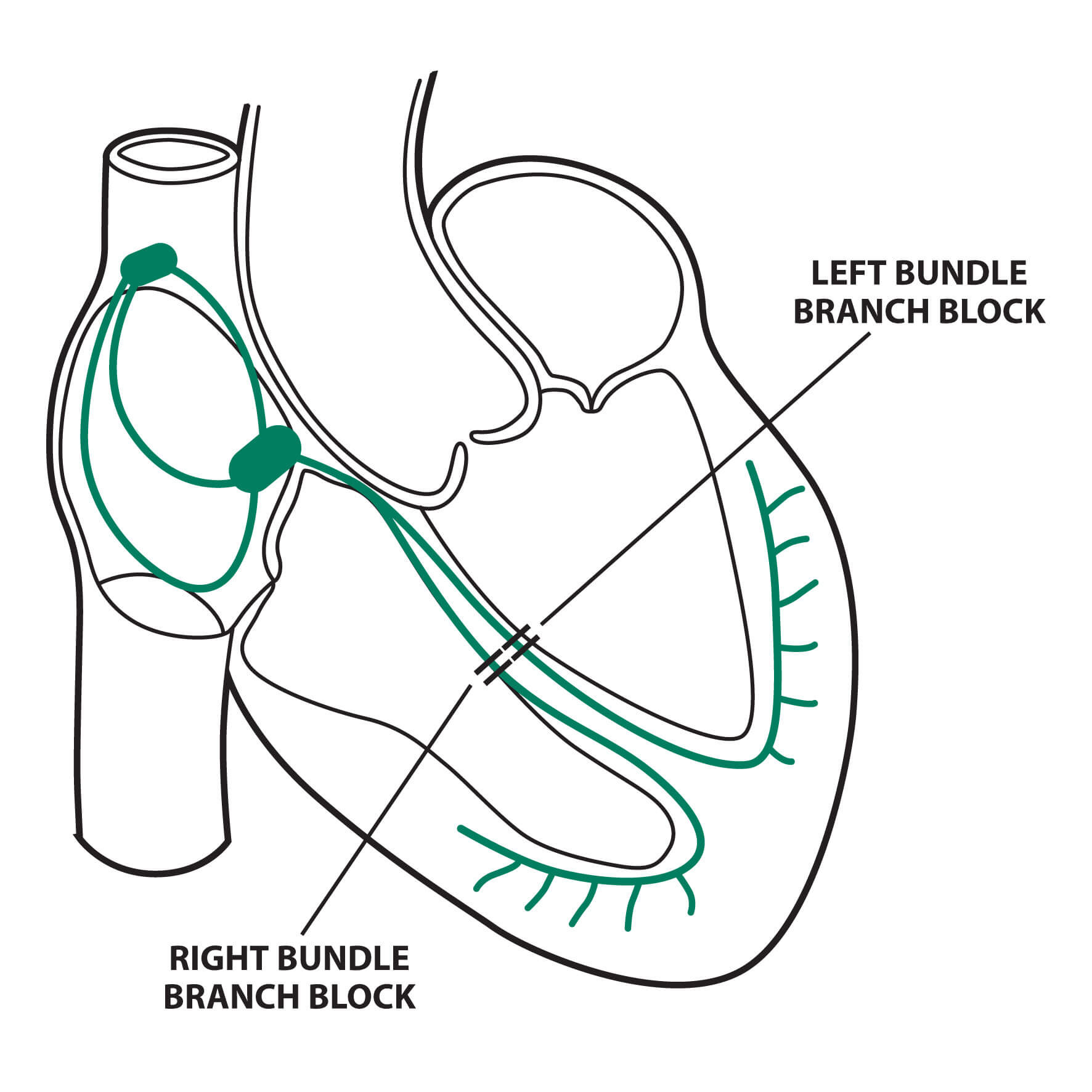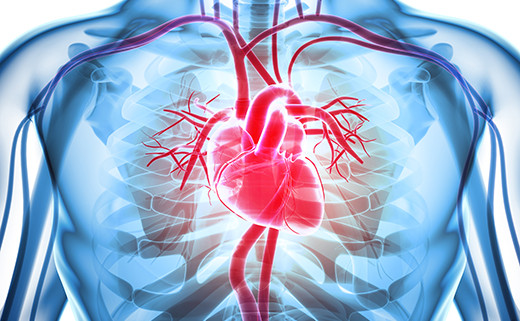Definition
Coronary Syndrome (ACS) is a term that describes situations where there is a sudden blockage of blood flow to the heart muscle. ACS is divided into two types: acute myocardial infarction (heart attack) and unstable angina. Doctors typically refer to both conditions as heart attacks. The term ACS is often used to communicate with medical professionals.
Causes
ACS begins with accumulating cholesterol, fat, and other substances in the blood vessels, known as plaque. This buildup occurs over many years and is called atherosclerosis. Plaque in the blood vessels can rupture or dislodge, causing a blood clot to form over the plaque. This clot can partially or completely block blood flow. Blood flow is essential for supplying oxygen to the heart muscle. When the heart muscle lacks oxygen and nutrients, damage or death of some heart muscle tissue occurs.
Risk factor
Similar to heart failure and stroke, ACS is more likely to occur in individuals with certain risk factors, such as:
- Advanced age
- Male gender
- Smoking
- High blood pressure
- High cholesterol
- Diabetes mellitus
- Lack of exercise
- Overweight or obesity
- Family history of chest pain, heart disease, or stroke
- Stress
- Alcohol consumption
- Poor diet
- Poor nutrition
Symptoms
Common symptoms of ACS include:
- Chest pain or discomfort, which can feel like pressure, tightness, burning, heat, or fullness, can also occur in gastrointestinal diseases, often leading to misdiagnosis. A distinguishing factor is that gastrointestinal pain typically subsides with belching or vomiting, whereas ACS pain does not. ACS is often accompanied by shortness of breath or sweating, but these are not definitive indicators.
- Pain or discomfort in the left arm, jaw, neck, back, or abdomen
- Shortness of breath
- Dizziness or lightheadedness
- Nausea
- Sweating
ACS symptoms can occur suddenly without warning as the heart compensates for reduced blood flow through nearby blood vessels.
There are differences in the blockage mechanism between acute myocardial infarction and unstable angina, leading to slightly different symptoms:
- Acute myocardial infarction: The blockage occurs suddenly and completely, obstructing all blood flow to a specific part of the heart muscle, causing sudden chest pain, commonly referred to as a heart attack.
- Unstable angina: Blood clots form and dissolve repeatedly over the plaque, causing unpredictable, intermittent pain that worsens over time. Pain may occur at rest and does not improve with medication or rest. Angina does not cause permanent heart muscle damage but can progress to acute myocardial infarction, making it an emergency condition.
Diagnosis
A doctor will take your medical history and perform a physical examination to diagnose ACS. If ACS is suspected, the doctor may conduct tests such as:
- Blood tests: These indicate heart muscle cell damage.
- Electrocardiogram (ECG): This test records the heart's electrical activity and can show signs of ACS.
Management
If tests reveal a blockage in blood flow to the heart, treatment and therapy for ACS will be initiated. The treatment may vary depending on the type of ACS.
Cardiac catheterization: The initial therapy for ACS involves identifying the blocked coronary artery through cardiac catheterization. A catheter is inserted through a blood vessel in the arm or leg and guided to the heart's blood vessels. A contrast dye is injected through the catheter, and X-rays are taken to reveal any blockages. This procedure also allows the doctor to assess the heart's pumping function.
Depending on the severity of the blockage, the doctor will discuss the best treatment options, which may include:
- Percutaneous Coronary Intervention (PCI) or Balloon Angioplasty: A small balloon is inserted into the blocked coronary artery through the catheter. The balloon is inflated to compress the plaque, then deflated and removed. A stent may be placed to keep the artery open. Angioplasty is most effective when performed within 4 hours of symptom onset. In hospitals without quick access to angioplasty, clot-dissolving medications may be administered.
- Coronary Artery Bypass Surgery: This procedure involves taking a blood vessel from another part of the body to create a new route for blood to flow around the blocked artery.
Medications for dissolving blood clots: ACS therapy involves various medications. The best combination will be tailored to your situation. Medications for ACS include:
- Anticoagulants and antiplatelets: to prevent blood clots
- Vasodilators: To widen blood vessels for better blood flow
- Blood pressure medications
- Heart rate and pump control medications
- Cholesterol-lowering medications
- Diuretics: To eliminate excess fluids
Complications
ACS can lead to arrhythmias or cardiac arrest, where the heart stops functioning, which can be fatal without prompt and proper treatment.
Heart muscle damage from inadequate blood supply can weaken the heart's pumping ability, leading to severe impairment and heart failure. The extent of damage influences the severity of complications; widespread damage significantly reduces heart function.
Prevention
ACS can occur at a young age. It's never too early to adopt a healthy lifestyle. Preventing ACS is crucial and should begin early. Identify and manage your risk factors.
If you are over 40 and have multiple risk factors for a heart attack, consult a doctor to manage these risks.
When to see a doctor?
Chest pain or discomfort can be a sign of heart problems and should not be ignored. If you experience ACS symptoms, contact emergency services immediately, even if unsure. Every minute counts, as heart muscle damage occurs rapidly.
Do not drive yourself to the hospital, as it is dangerous.
Looking for more information about other diseases? Click here!
- dr Anita Larasati Priyono
Acute Coronary Syndrome. www.heart.org. (2022). Retrieved 6 April 2022, from https://www.heart.org/en/health-topics/heart-attack/about-heart-attacks/acute-coronary-syndrome.
Acute coronary syndrome - Diagnosis and treatment - Mayo Clinic. Mayoclinic.org. (2022). Retrieved 6 April 2022, from https://www.mayoclinic.org/diseases-conditions/acute-coronary-syndrome/diagnosis-treatment/drc-20352140.
Acute Coronary Syndrome: Practice Essentials, Background, Etiology. Emedicine.medscape.com. (2022). Retrieved 6 April 2022, from https://emedicine.medscape.com/article/1910735-overview.











